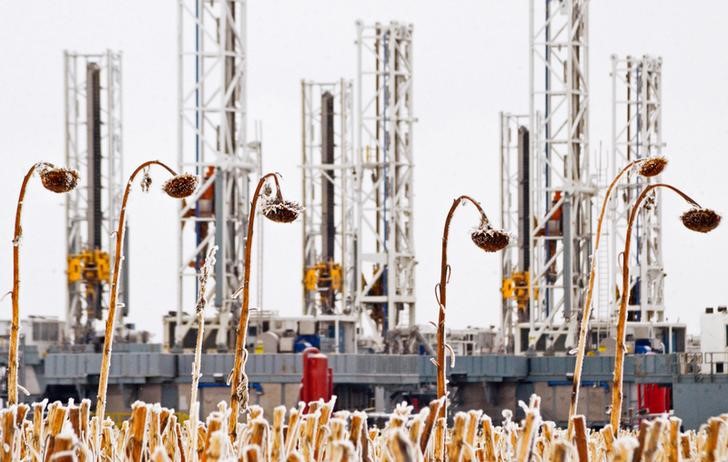Street Calls of the Week
Investing.com - The recent decision by the G7 to implement a price cap on Russian oil exports has prompted the Kremlin to increase taxes on producers, further hindering an energy sector already grappling with Western sanctions. Officials from the western coalition have expressed concerns that this move could severely impact Russia's ability to invest in its industry for long-term growth.
In response to the G7-imposed price cap, Moscow altered its method of taxing oil companies back in April. Levies are now based on Brent crude international benchmark prices minus a fixed discount rather than Urals prices – Russia’s primary export crude which has been trading at lower rates recently. This adjustment was aimed at securing up to $8 billion in additional revenue and compensating for reduced oil export earnings due to Western sanctions targeting financial support for Ukraine conflict.
However, during Q1 2023, tax revenues from Russian oil and gas witnessed a steep decline of 45% compared to last year’s figure, including an alarming drop of 85% YoY in March alone for refined petroleum products. According to officials, nearly half of Russia's budget relies upon these sources of income.
Western authorities believe their strategy is successfully forcing Moscow into making difficult economic decisions while continuing funding warfare efforts. The new tax changes seem like an attempt by Russia at sacrificing future investment prospects within its energy sector just so it can maintain current conflict expenditures.
Russian oil output experienced a dip last month as well; falling down to 10.4 million barrels per day (b/d) possibly as retaliation against the imposed price cap by major economies known as Group Seven(G7). Although these countries consider their measure effective overall, some customs data hints that certain Russian exporters managed higher prices despite restrictions placed upon them.
The G7 finance ministers and central bank governors are scheduled to convene in Japan this week, followed by a leaders summit later this month. Discussions regarding Russian sanctions will likely take center stage during these events. The coalition also plans to intensify efforts against evasion tactics employed by those attempting to bypass the price cap restrictions.
Ultimately, Moscow's decision to tax oil sales based on Brent prices rather than Urals indicates an acceptance of discounted trade rates for the foreseeable future. This shift signifies a major change for Kremlin policy-makers who previously would have found such a system unfavorable before the ongoing conflict began impacting their finances.
